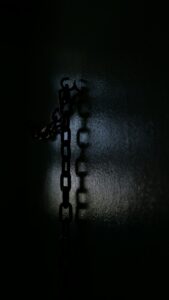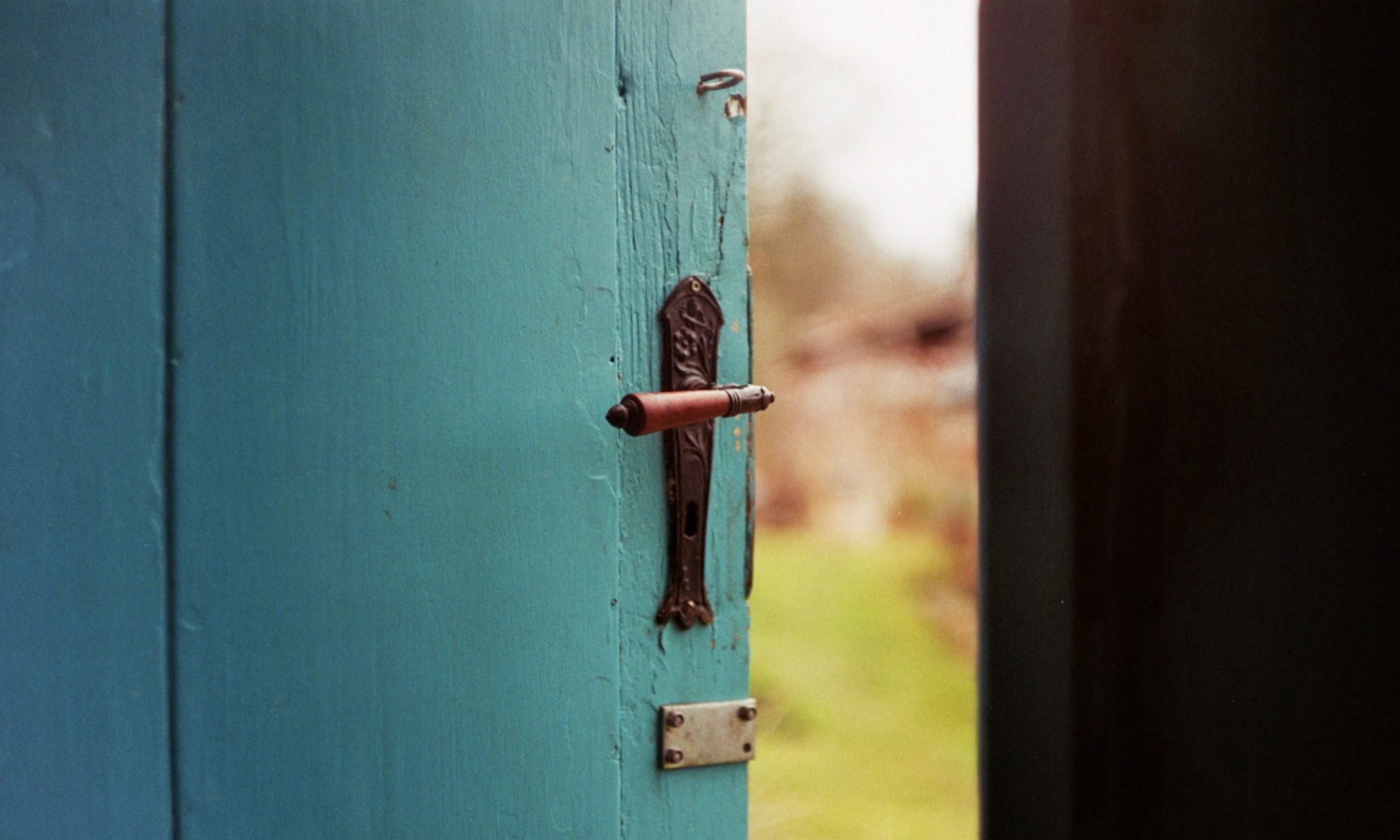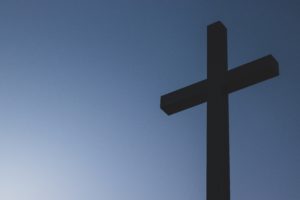Father Chet, February 1979

No matter who we are, we are all more or less enslaved to the world, to the flesh, and to the “devil.”
Slavery to the world characterizes our excessive attachments to worldly things: money, honors, possessions, power, and position.
The slavery to the flesh refers to our enslavement to bodily pleasures: food, drink, sex, comfort, and ease.
As for the “devil,” this represents our love of self, which results in rejecting God and others. This is the most difficult to escape from. Pride, egotism, self-idolatry, egocentricity, selfishness, self-love – these are its various names.
To the extent that we indulge in any of these three forms of slavery, we condemn ourselves to a life of spiritual immaturity, depriving ourselves from experiencing the fullness of a life of love. Yet, it comes with a cost.
Experiencing Suffering
The price of freedom and redemption is suffering. The sufferings of Jesus Christ paid the major portion of our redemption. But as St. Paul reminds us, besides the sufferings of Christ the Head, the whole Body of Christ will also suffer.
“Even now I find my joy in the suffering I endure for you. In my own flesh I fill up what is lacking in the sufferings of Christ for the sake of his body, the Church.” (Col. 1:24)
Experiencing Dark Nights
The real cause of our suffering during the Dark Night is to release us from slavery to the world, flesh, and “devil.” In them, we may be deprived of our former pleasures, self-satisfactions, successes, fulfillment and contentment.
“Those things I used to consider gain I have now reappraised as loss in the light of Christ. I have come to rate all as loss in the light of the surpassing knowledge of my Lord Jesus Christ. For his sake I have forfeited everything. I have accounted all else as garbage (rubbish, manure) so that Christ may be my wealth and I may be in him, not having any justice of my own … The justice I possess is that which comes through faith in Christ…
“I wish to know Christ and the power flowing from his resurrection; likewise, to know how to share in his sufferings by being formed into the pattern of his death. Thus, do I hope that I may arrive at resurrection from the dead.” (Phil 3:7-11)
What We Gain
While we are enduring this loss of former pleasures and satisfactions, we tend to be most aware of what we have lost and not yet aware of what is being given us in their stead. Actually, if we will persevere and not rebel against what God is accomplishing in our souls, we will come out of the tunnel into a new and higher perspective of God, the world, and ourselves.
“Now we see indistinctly, as in a reflection, then we shall see face to face. My knowledge is imperfect now, then I shall know even as I am known.” (I Cor. 13:12).
Embracing Mystery

The problem of Job remains our problem. Why did Job, a good and holy man, well-pleasing to God, have to suffer so much? For 37 chapters, the author of this book of the Old Testament, struggles with the problem of evil and suffering without finding any satisfactory answer.
Finally, in chapter 38, God appears to Job in a whirlwind. Does God answer Job’s question as to why he, a good man, had to suffer so much? Not at all! Instead, for four long chapters, God proceeds to ask Job a whole series of apparently irrelevant, unanswerable questions. ”Where were you when I founded the earth? Who determined its size? Have you ever in your lifetime commanded the morning and shown the dawn its place?” (Job 38: 4-12).
God is telling Job that there are countless mysteries, and that God is absolute mystery, the great Unknowable. If there are so many other things about God that we cannot understand, why should we imagine that we can understand the suffering that is so much a part of life on earth?
Embracing Acceptance
In chapter 42, Job is finally subdued and tells God that he is sorry he ever raised the question. “I know that you can do all things and that no purpose of yours can be hindered. I have dealt with great things that I do not understand; things too wonderful for me, which I cannot know. I have heard of you by word of mouth, but now my eye has seen you. Therefore, I disown what I have said and repent in dust and ashes.” (Job 42: 2-6)
Often, this reply of Job is the only answer we have to the problem of suffering and the Dark Nights we experience. We do not understand, but we still try to put our faith and trust in God.
Embracing the Cross
Even the twelve apostles, who were constantly with Jesus, failed to comprehend the mystery of the cross. The Gospels keep repeating their lack of comprehension: “They did not understand this saying and it was concealed from them.” (Luke 9:45) “They understood none of these things; this saying was hidden from them and they did not grasp what was said.” (Luke 18: 34)
On the road to Emmaus the Risen Christ chided the two disciples about their slowness to accept the mystery of the cross: “Oh foolish men and slow of heart to believe…was it not necessary that the Christ should suffer these things and enter into his glory?” (Luke 24:25-26)
Experiencing the Fullness of Love
Ultimately, our best explanation for the Dark Night is really no explanation at all. It is simply the acceptance of a mystery from the hands of the supreme Lord of heaven and earth who has proven in countless ways that he is all-good, all-loving, all-powerful, all-Wise, and who has given the greatest of all proofs of his love by sending his Son to earth to suffer and die for us.
If it was necessary that Jesus Christ, Son of God, should suffer the Dark Night of agony in order to redeem us; then we, too, should “find joy in the suffering we endure in our own flesh in order thereby to fill up what is lacking in the suffering of Christ” (Col. 1:24).
Editor’s Note: This is the third of three installments of Fathers Chet’s writings on the Dark Night. The first reflection was published in February and the second in April.

